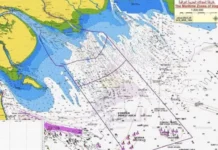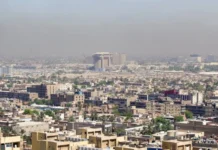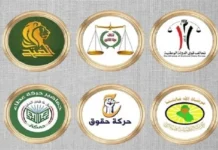Tishwash: The number of banks participating in the project is steadily increasing, including BBAC, IIB, CIHAN, RT, and NBI, all of which are recognized and approved by the Central Bank of Iraq.
1000 ATMs will be installed by end of year across all provinces in KRG
The registration process for Kurdistan Regional Government (KRG) salaried employees in the “My Account” project continues, with the number of registrations reaching 260,000 people. Additionally, 153,000 cards have been issued to those registered.
Approximately 1,000 ATMs will be installed across all provinces, districts, and areas of the Kurdistan Region of Iraq (KRG) by the end of 2024, as announced by the Kurdistan Regional Government (KRG) Media and Information Office on Thursday.
The number of banks participating in the project is steadily increasing, including BBAC, IIB, CIHAN, RT, and NBI, all of which are recognized and approved by the Central Bankof Iraq.
As a pilot initiative last year, employees of Erbil Maternity Hospital received their salaries through “My Account.”
At the conclusion of last year, the colleges of arts, agriculture, and science at Salahaddin University began receiving salaries through “My Account.”
Some of the project’s services include:
1. Access to hundreds of ATMs to withdraw all user funds at once for free.
2. Available equipment for 24-hour use, allowing employees to withdraw money at their convenience.
3. Access to various bank loans and advances.
4. Use of debit cards for online purchases and Point of Sale (PoS) transactions.
5. Secure and safe money transfers domestically and internationally.
6. Access to the bank’s mobile application to monitor account activity and receive mobile notifications upon salary deposits. link
***********
CandyKisses: Sudani’s visit to Washington. Iraqi insistence on removing the occupier
Information / Baghdad…
Amid assurances that there is an active and serious move by the government and its negotiating delegation with the so-called international coalition to end its presence in Iraq, the Iraqis insist on removing these forces or returning to resisting the American occupier.
The visit of Prime Minister Mohammed Shia al-Sudani to Washington may be a gateway to ending the US combat presence in Iraq or it may fail if Washington insists on keeping its forces on Iraqi soil, which will give the green light to the Islamic resistance to Resume its operation against the foreign occupier.
In order to explain the most important files that the Sudanese will carry with him to Washington, MP for the Sadiqoun bloc, Muhammad Karim, says that “the prime minister will discuss the file of arming the army, and the development of Iraq’s air defenses, In addition to the file of removing the US combat forces.
Karim added that “America will try to impose some files during the next visit, while the governments enjoy political and parliamentary support in moving towards making fateful decisions during the negotiating round, which will begin in the middle of next month, although the government has come a long way in negotiations through the joint committees formed by the two parties.”
On the other hand, former MP Ahmed Ali stressed that “the attacks carried out by America on the headquarters of the Iraqi factions represent a violation of the agreement between Baghdad and Washington.”
He told Al-Maalouma that “the factions announced their commitment to government decisions to resort to a diplomatic solution to remove US forces.”
He pointed out that “the government is past in the file of the exit of Americans from Iraq, and the visit of the Sudanese has put this file among the priorities in the talks that will be held with Biden.”
In the same context, Hussein al-Karawi, head of the organizing body of the popular movement for the Belt and Road, said that “the experience with America confirms that its forces will not leave Iraq peacefully.
Al-Karawi told Al-Maalouma that “Washington seeks not to empty the Iraqi arena of the military presence of its forces, so these forces will not leave Iraq without the resistance carrying out jihadist actions to end their presence on Iraqi territory and force them to leave.”
Iraqi Prime Minister Mohammed Shia al-Sudani said he wanted a “quick and ordered exit” of the US-led international coalition forces from Iraq amid mounting demands that US forces do not remain in Iraq.
“Let’s agree on a time frame (for withdrawal) that is quick so as not to prolong the existence and the attacks continue,” al-Sudani said in an earlier interview with Reuters news agency, noting that the only way to avoid a regional escalation is to stop the war in Gaza.
************
Tishwash: After Saudi Arabia, Iraq ranks second among the five oil-producing countries in the region – Urgent
BP statistics in the last two decades show that the tightening of sanctions against Iran and the increase in Iraqi oil sales have pushed Iraq to assume the position and market of Iranian oil in the region.
When talking about the Iranian economy, oil is considered one of the most important variables that must be examined. This black gold has affected the economy such that with the flood of its sales in global markets, the Iranian economy is witnessing great prosperity, and with the decline of its sales, it is on the path to recession.
Studies have previously pointed out the importance of oil revenues and the difference in oil sales statistics from three reliable sources, and the reason for this difference has been discussed in detail.
Iraq, Saudi Arabia, the Emirates, and Qatar are leading countries in the oil industry in the region, similar to Iran. Today, if we want to see the performance of Iranian oil sales compared to these countries, we must take a look at the oil sales statistics and examine them carefully.
This report, prepared by the “Aquairan” economic website, reviews Iran’s share of oil sales in the past two decades.
Iraq is at the forefront
Oil statistics provided by British Petroleum (BP) show that since 2004, Iran has become the second oil exporting country among these five oil countries after the Kingdom of Saudi Arabia. This year, Saudi Arabia’s oil exports reached 6 million and 800 thousand barrels per day, while it reached Iran’s exports are 2 million and 700 thousand barrels.
At that time, Iraq was the fourth largest oil exporter among these countries and sold only 1.5 million barrels of oil per day.
Over time, Iran continued to maintain its position among these five countries until 2011, but Iraq’s exports did not remain constant as was the case in Iran, but rather rose to reach 2 million and 400 barrels of oil per day.
In 2011, with the beginning of the series of oil sanctions on Iran, Iranian oil sales suddenly suffered a severe blow, and this blow continued, even after the nuclear agreement in 2015, as Iraq ranked second in the region and Iran fell to fourth.
The positive impact of the JCPOA on the Iranian oil market contributed to Iran’s oil export position rising by one point among the five countries and reaching third place in 2017, but this success was short-lived. With Trump’s accession to American power and his withdrawal from the nuclear agreement, as well as the beginning of the Corona pandemic, Iran declined again in 2021, and ranked third with a daily export of 1.9 million barrels.
This comes at a time when, in that year, Iraq exported 3.4 million barrels of oil per day and ranked second after Saudi Arabia among the five oil-producing countries in the region.
The increase in Iraq’s oil sales and the tightening of oil sanctions on Iran in these two decades caused a change in the position of Iran and Iraq in oil sales, and Iraq was able to seize second place. link





